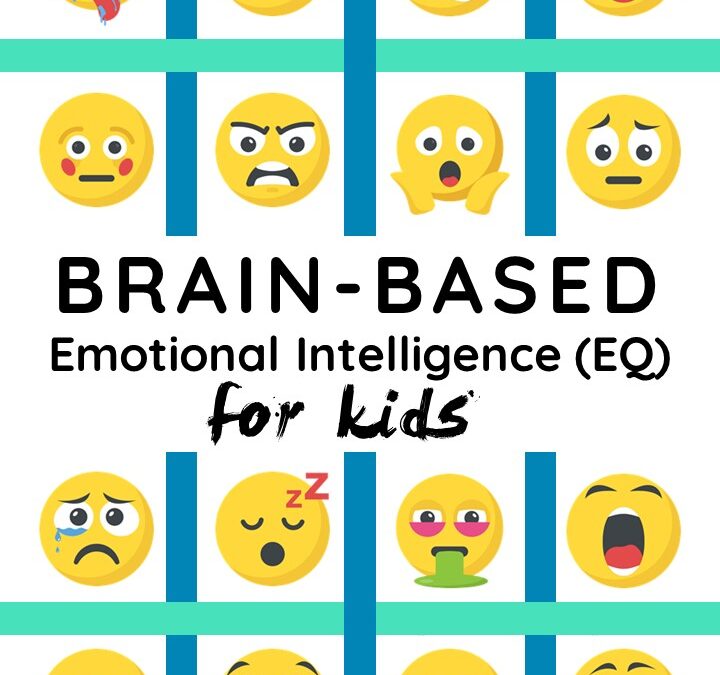Why Is This Important?
A great deal of research has proven the benefits of social and emotional skills: positive academics, interpersonal growth, and mental health outcomes. We know that children feel stress and a range of emotions, both positive and negative, similar to that of adults. The difference is that as adults, our minds and bodies have matured enough to learn coping strategies.
When left on its own, our brains respond to stress and anxiety triggers the same way, regardless of age. Research supports that mindfulness can help children cope with problems (big and small), experience less stress, anxiety and sadness, have better sleep habits, improve social skills, be more compassionate, have more confidence, reduce attention problems, perform better academically, feel and express gratitude more freely, focus and concentrate, become more resilient, and in general happier and more content (Zelazo & Lyons, 2012).
When we practice mindfulness, we engage the prefrontal cortex, which is the part of the brain that gives us the ability to perform higher thought. In addition, children with strong social skills are better able to maintain friendships, participate in classroom activities, and be positively engaged in learning (Denham, 2006).
Research shows that children who are able to effectively manage their thinking, attention, and behavior are also more likely to have better grades and higher standardized test scores (Bull et al., 2008, Howse et. al, 2003). Social and emotional skills also serve as important protective factors when students face negative life events or stressors throughout their lives (Buckner, Mezzacappa & Beardslee, 2009).
Why Now?
Late childhood and upper elementary school is a time period when the child’s personalities, behaviors, and competencies come together to shape who they will become in adolescence and as adults (Collins, 1984).
The late childhood years (just before the transitional period of puberty) is a time when there is significant growth in the prefrontal cortex and this sets the stage for advances in the executive functioning, how they will organize, sequence, and regulate behavior (Giedd, 2008). During these years, children are able to consider the feelings and perspectives of others— they develop a sense of right and wrong and become much more social.
Providing enrichment activities that support healthy forms of self-regulation and reflection and prosocial dispositions could ameliorate or even prevent some of the mental health and school-linked problems that often arise as they transition to puberty (Best & Miller, 2010; M.C. Davidson, Amso, Anderson & Diamond, 2006). Programs that offer social and emotional skills are instrumental in creating more caring communities of learning. Thank you for choosing this one!
References
Collins, W. A. (1984). Development during middle childhood: The years from six to twelve. Washington, DC: National Academy Press.
Giedd, J. N. (2008). The teen brain: Insights from neuroimaging. Journal of Adolescent Health, 42, 335–343. http://dx.doi.org/10.1016/j.jadohealth.2008.01.007
Best, J. R., & Miller, P. H. (2010). A developmental perspective on executive function. Child Development, 81, 1641–1660. http://dx.doi.org/10.1111/j.1467-8624.2010.01499.x
Davidson, M. C., Amso, D., Anderson, L. C., & Diamond, A. (2006). Development of cognitive control and executive functions from 4 to 13 years: Evidence from manipulations of memory, inhibition, and task switching. Neuropsychologia, 44, 2037–2078. http://dx.doi.org/10.1016/j.neuropsychologia.2006.02.006
Zelazo, P. D., & Lyons, K. E. (2012). The potential benefits of mindfulness training in early childhood: A developmental social cognitive neuroscience perspective. Child Development Perspectives, 6, 154–160. http://dx.doi.org/10.1111/j.1750-
8606.2012.00241.x
Bull, R., Espy, K. A., & Wiebe, S. A. (2008). Short-term memory, working memory, and executive functioning in preschoolers:
Longitudinal predictors of mathematical achievement at age 7 years. Developmental Neuropsychology, 33 (3), 205-228.
Howse, R. B., Lange, G., Farran, D. C., & Boyles, C. D. (2003). Motivation and self-regulation as predictors of achievement in
economically disadvantaged young children. The Journal of Experimental Education, 71 (2), 151-174.
Buckner, J. C., Mezzacappa, E., & Beardslee, W. R. (2003). Characteristics of resilient youths living in poverty: The role of self-regulatory processes. Development and psychopathology, 15(1), 139-162.
Denham, S. A. (2006). Social-emotional competence as support for school readiness: What is it and how do we assess it? Early Education and Development, Special Issue: Measurement of School Readiness, 17,
57-89.

